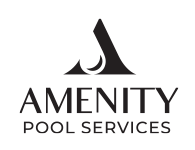Pool Compliance
Ensure your facility is compliant with local and national regulations.
A pool that is not in compliance with the many regulations involved in the operation or maintenance standpoint exposes users to unnecessary hazards and exposes owners to high levels of liability. American Pool’s management and renovation teams are knowledgeable and up to date on the latest national and local regulations including VGBA and ADA. This means that we are able to help you, as a commercial pool owner, to meet existing and emerging facility requirements. Compliance and liability reduction are compelling reasons to consider outsourcing your pool operation with American Pool.
Our friendly staff makes sure that our clients are provided with clear solutions to comply with any changes to regulations. As a pool owner, manager or board member, you can find comfort in knowing that American Pool is always working for you to ensure that your pool environment is in compliance and safe for all to enjoy.
Schedule a free safety consultation with one of our trained professionals to help ensure your pool meets all safety regulations for your area.







